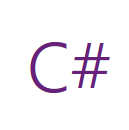| C# Books - Pick of the Shelf Revisited |
| Written by Kay Ewbank | |||||||
| Thursday, 03 August 2017 | |||||||
Page 3 of 3
Cookbooks and ReferencesOur first recommendation for a book of ideas and techniques is Concurrency in C# Cookbook (O'Reilly, 2014). Giving the book a rating of 4, Mike James said: "Concurrency is a tough topic and you need all the help you can get, hence this book needs no excuse to exist." He advises against assuming this will be a book all about await and async, saying: "Notice that the title is Concurrency and the subtitle is asynchronous, parallel and multithreadedprogramming. So the topics covered are much bigger than simply asynchronous programming." In addition to a general introduction to concurrency, and chapters on async and await, there are chapters on parallel programming, including parallel for and parallel LINQ;unit testing for each of the approaches; recipes using immutable collections; and the very difficult problem of cancellation. Other topics covered include how to write functional friendly OOP with async; synchronization; and scheduling.
The review concludes: "This is a good book which contains lots of good ways of doing things, but overall if you understand the theory well enough you probably don't need many of them. Often you find that you are reading an explanation of some recipe and you encounter a throwaway line that really needs a longer explanation in its own right - but this would be beyond the topic of the recipe. It is also too light on the basics of async and await and on RX. It would be much better to recast the material in this book into a tutorial style."
In the days before .NET Core, there was .NET and a few essential technologies like WPF, LINQ, WCF and C#. Today's landscape is very different and one of the big issues that you have to sort out is what are the technologies that will survive. Recommending Ben Watson's C# 4.0 How-To (Sams, 2010), Mike James gave it a rating of 4.5, describing it as "an enjoyable read" and his review starts: This is essentially a cookbook that shows you the best way to use C# to solve various problems. Some of the problems are contrived just to allow the author to write about some topic or other- but this isn't a bad thing.
Later he writes: The biggest problem with the presentation is that each How-to is short on explanation. In most cases a problem is set and a brief "use this" answer provided. To find out and understand what "use this" means you have to read the code and especially the embedded comments. This mostly works but it would have been better to have just a little more discussion rather than the rapid move to code. Another title worth considering for the sheer number of recipes is Visual C# 2010 Recipes (Apress, 2010), though it would be improved by being re-issued for more modern C# versions.
Suitable for beginning to intermediate C# developers, it is divided into 17 chapters dealing with just about everything you could think of relevant to using C# including newer topics such as parallel programming, WPF 4 and LINQ. It is a thick tome and its disadvantage is that it includes many trivial recipes. If you looking for a big book on C# to keep on your bookshelf as a reference we can recommend Pro C# 2010 and the .NET 4 Platform by Andrew Troelsen (Apress). Mike James' main criticism of this book that he described as "an encyclopedia of .NET from the point of view of C#" and "a genuinely useful book" was that at 1750 pages it was difficult to handle. There's now a revised and rewritten edition covering C#6 and .NET 4.6 with new chapters covering the refined ADO.NET Entity Framework Programming Model and updates to the ASP.NET Web APIs.
By contrast to the large size of the previous book, C# 4.0 Pocket Reference (O'Reilly, 2010) is a small-format pocket reference on C#. It has now been updated to cover C# 7, and in addition to all of C#’s fundamentals, covers advanced topics such as operator overloading, type constraints, covariance and contravariance, iterators, nullable types, operator lifting, lambda expressions, and closures. Features new to C# 7.0 are also covered, including tuples, pattern matching, and deconstructors.
In his review, Ian Elliot wrote: "I read this particular guide from cover to cover in one sitting - something most readers won't do - and I have to say that it was a great way to make sure that I'd got C# into my head with no significant gaps. If you are an occasional C# user then this might be a good way to refresh your knowledge in double quick time. Giving this title a star rating of 4.5, the review concludes: If you want a really good pocket guide to C# 4.0 then this is it - just buy it. But don't expect a deep discussion of complex and subtle topics, this is the minimum presentation of what you need to know.
Also on Programmer's BookshelfReading Your Way Into Big Data Pick of the Shelf - SQL Server 2012 MySQL and MariaDB Database Books C# Books - Pick of the Shelf (2012)
Comments
or email your comment to: comments@i-programmer.info
To be informed about new articles on I Programmer, subscribe to the RSS feed, follow us on Google+, Twitter, Linkedin or Facebook or sign up for our weekly newsletter.
<ASIN: 1449367569> <ASIN: B00KCY2CB4>
<ASIN: 0672330636> <ASIN: B003AYZBCU>
<ASIN:1430225254> <ASIN: B00642RMGS> <ASIN: 1484213335> <ASIN: B01JCOH82M>
<ASIN: 1491988533> <ASIN: B073PLFCG2>
|
|||||||
| Last Updated ( Thursday, 03 August 2017 ) |


